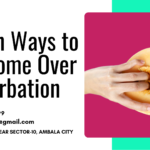Sexual desire and behavior are natural parts of being human. Understanding these feelings can help us build better relationships and improve our overall well-being. In this article, we will explain what sexual desire is, what affects it, and how sexual behavior works in everyday life.
Table of Contents
What is Sexual Desire?
Sexual desire, also known as libido, is the feeling or interest in engaging in sexual activity. It varies from person to person and is influenced by physical, emotional, and psychological factors.
Factors That Affect Sexual Desire
- Hormones: Hormones like testosterone and estrogen play a key role in controlling sexual desire.
- Age: Libido changes over time. Younger adults often experience higher sexual desire, but it can shift with age.
- Health: Physical and mental health, including stress levels, can impact libido.
- Relationship Status: Emotional closeness and satisfaction in relationships can increase sexual desire.
What is Sexual Behavior?
Sexual behavior includes all activities related to sexual desire. This can be anything from intimate touching to intercourse. People express sexual behavior in many different ways, depending on their comfort, culture, and personal values.
Types of Sexual Behavior
- Solo Behavior: This includes activities like masturbation, where a person engages in sexual pleasure on their own.
- Partnered Behavior: Involves any sexual activity with another person, such as kissing, touching, or intercourse.
- Non-Physical Behavior: Activities like sexting or reading erotic content are forms of sexual expression without physical contact.
Psychology of Sexual Desire
Sexual desire is not only about physical attraction; it also has emotional and mental components. Our past experiences, feelings, and personal beliefs can shape how we feel about sex.
- Emotions: People may feel more sexually attracted to someone they have an emotional connection with.
- Self-Image: How we feel about our own bodies can also affect our sexual desire and behavior.
- Cultural Influence: Social norms and expectations can influence how we express sexual desire.
Common Challenges in Sexual Desire
It’s normal for sexual desire to change over time. However, some people face challenges with their libido.
- Low Libido: Some individuals experience little or no sexual desire, which could be due to stress, health issues, or emotional concerns.
- High Libido: Others may feel an unusually high level of desire, which could be overwhelming or lead to frustration in relationships.
- Desire Differences in Relationships: It’s common for partners to have different levels of desire, which can sometimes cause tension.
How to Maintain a Healthy Sexual Desire and Behavior
Here are some tips for maintaining healthy sexual desire and a fulfilling relationship:
- Communication: Talk openly with your partner about your needs, desires, and boundaries.
- Emotional Connection: Build trust and emotional closeness, as this can strengthen sexual desire.
- Healthy Lifestyle: Regular exercise, a balanced diet, and managing stress can help boost your libido.
- Seek Help if Needed: If you are facing challenges, consider speaking to a doctor or a relationship counselor.
Have any Question about Sexual Desire, Contact Now
Understanding sexual desire and behavior is important for both personal satisfaction and healthy relationships. Everyone experiences sexual desire differently, and it's influenced by many factors, including hormones, emotions, and life circumstances. Being open about your feelings and maintaining good communication with your partner are key to a fulfilling sexual life.
By staying informed and addressing any challenges that arise, you can improve your well-being and enjoy a healthier, more balanced relationship with yourself and others.







